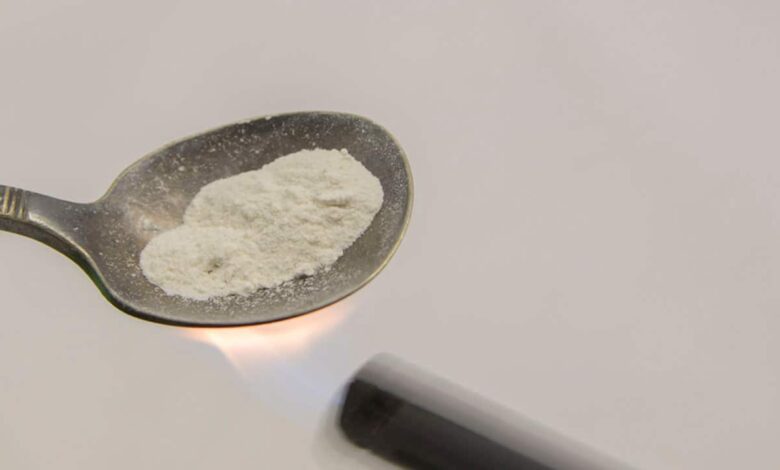Drug overdose deaths have surged during pandemic, CDC data shows

[ad_1]
As the COVID-19 pandemic killed more than a half-million Americans, it also quietly inflamed what already was one of the country’s greatest public health crises: drug addiction.
The Centers for Disease Control and Prevention estimates that more than 87,000 people died of drug overdoses in the 12 months ending in September 2020 — the latest figures available.
That toll is the highest number of overdose deaths ever recorded in a year, since the opioid epidemic began in the 1990s, The New York Times reported.
Overdose deaths were seen dropping slightly in 2018 for the first time in decades.
COLORADO AUCTIONING WEED-THEMED LICENSE PLATE TO RAISE MONEY FOR DISABILITY FUND
Nationally the CDC has attributed the nationwide increase in overdose deaths to disruptions to daily life caused by the pandemic as well as street formulations laced with the powerful painkiller fentanyl.
Coronavirus disrupted many things that people who use opioids rely on, such as using drugs with friends who can revive them or seek help if someone appears to be overdosing.
The pandemic also forced drug users to rely on different sources for their drugs, so they might not have been as aware of what they were getting.
“Dealers are lacing these non-opioid drugs with cheaper, yet potent, opioids to make a larger profit,” Dr. Nora Volkow, the director of the National Institute on Drug Abuse, said at a national addiction conference last week.
“Someone who’s addicted to a stimulant drug like cocaine or methamphetamine is not tolerant to opioids,” added Volkow, “which means they are going to be at high risk of overdose if they get a stimulant drug that’s laced with an opioid like fentanyl.”
The pandemic drove those Americans already in the shadows further into isolation, economic fragility and fear while at the same time upending the treatment and support systems that might save them.
Experts say the devastation is an indictment of the public health infrastructure, which failed to fight the dueling crises of COVID-19 and addiction.
CLICK HERE FOR FULL CORONAVIRUS COVERAGE
“The data points corroborate something I believe, which is that people who were already using drugs started using in ways that were higher risk — especially using alone and from a less reliable supply,” Brendan Saloner, an associate professor at the Johns Hopkins School of Public Health who studies access to addiction treatment, said.
Disruptions in health care exacerbated the collateral consequences of injection drug use — HIV, hepatitis C, deadly bacterial infections that chew flesh to the bone and cause people in their 20s to have amputations and open-heart surgeries.
“With health departments spending so much on COVID, some programs have really had to cut their budgets,” Sara Glick, an assistant professor of medicine at the University of Washington, said. “That can mean seeing fewer participants, or pausing their H.I.V. and hepatitis C testing.”
The Office of National Drug Control Policy released an outline last week of its priorities for the nation’s spiraling drug crisis. The measures include vouching to address “systemic inequities” in prevention, treatment and recovery.
The American Rescue Plan Act includes $1.5 billion for the prevention and treatment of drug abuse as well as $30 million in funding for local services that benefit addicts, including syringe exchange programs.
President Joe Biden’s new surgeon general, Dr. Vivek Murthy, has pledged responsibility, although Biden has yet to appoint a permanent “drug czar.”
CLICK HERE TO GET THE FOX NEWS APP
“As a child, I watched them make house calls in the middle of the night and wake up early to visit patients in the hospital before heading to their office,” he told senators during his confirmation hearing last month about his parents in Miami during his youth. “I have tried to live by the lessons they embodied: that we have an obligation to help each other whenever we can, to alleviate suffering wherever we find it, and to give back to this country that made their lives, and my life, and the lives of my children possible.”
He said he would make the relapsing opioid overdose crisis his top priority.
“We cannot neglect the other public health crises that have been exacerbated by this pandemic, particularly the opioid epidemic, mental illness and racial and geographic health inequities,” the soft-spoken physician told senators.
The Associated Press contributed to this report.
[ad_2]
Source link





